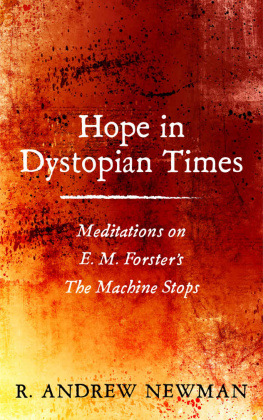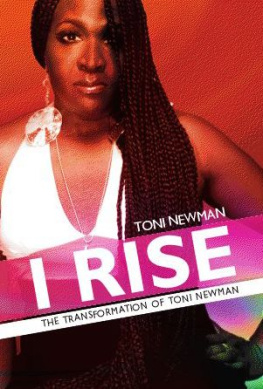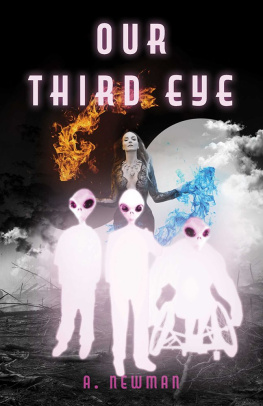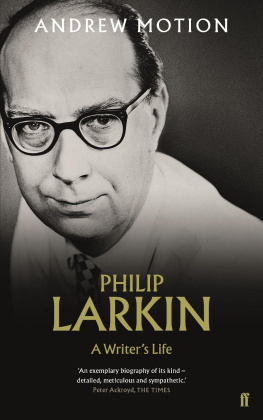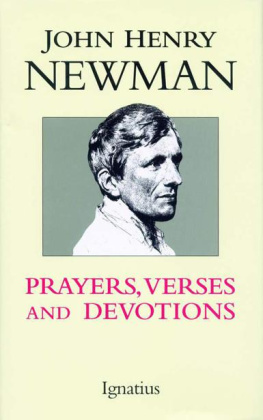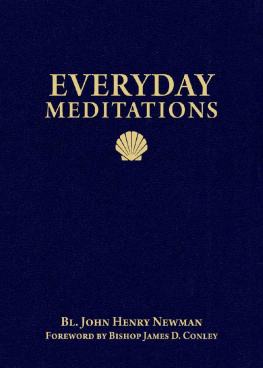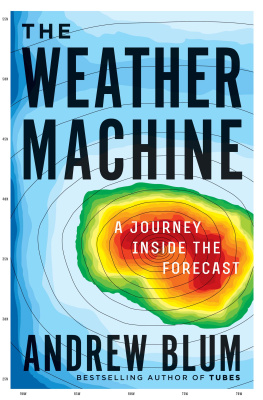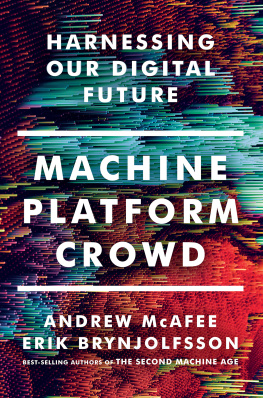R. Andrew Newman - Hope in Dystopian Times: Meditations on E. M. Forsters The Machine Stops
Here you can read online R. Andrew Newman - Hope in Dystopian Times: Meditations on E. M. Forsters The Machine Stops full text of the book (entire story) in english for free. Download pdf and epub, get meaning, cover and reviews about this ebook. year: 2020, publisher: 1350 Center Press, genre: Art. Description of the work, (preface) as well as reviews are available. Best literature library LitArk.com created for fans of good reading and offers a wide selection of genres:
Romance novel
Science fiction
Adventure
Detective
Science
History
Home and family
Prose
Art
Politics
Computer
Non-fiction
Religion
Business
Children
Humor
Choose a favorite category and find really read worthwhile books. Enjoy immersion in the world of imagination, feel the emotions of the characters or learn something new for yourself, make an fascinating discovery.
- Book:Hope in Dystopian Times: Meditations on E. M. Forsters The Machine Stops
- Author:
- Publisher:1350 Center Press
- Genre:
- Year:2020
- Rating:5 / 5
- Favourites:Add to favourites
- Your mark:
- 100
- 1
- 2
- 3
- 4
- 5
Hope in Dystopian Times: Meditations on E. M. Forsters The Machine Stops: summary, description and annotation
We offer to read an annotation, description, summary or preface (depends on what the author of the book "Hope in Dystopian Times: Meditations on E. M. Forsters The Machine Stops" wrote himself). If you haven't found the necessary information about the book — write in the comments, we will try to find it.
R. Andrew Newman: author's other books
Who wrote Hope in Dystopian Times: Meditations on E. M. Forsters The Machine Stops? Find out the surname, the name of the author of the book and a list of all author's works by series.
Hope in Dystopian Times: Meditations on E. M. Forsters The Machine Stops — read online for free the complete book (whole text) full work
Below is the text of the book, divided by pages. System saving the place of the last page read, allows you to conveniently read the book "Hope in Dystopian Times: Meditations on E. M. Forsters The Machine Stops" online for free, without having to search again every time where you left off. Put a bookmark, and you can go to the page where you finished reading at any time.
Font size:
Interval:
Bookmark:
Hope in Dystopian Times
Meditations on E. M. Forster's The Machine Stops
R. ANDREW NEWMAN
1350 CENTER PRESS
Copyright 2020, R. Andrew Newman
Contents
INTRODUCTION
Today, the novelist E. M. Forster (1879-1970) is remembered for his novels, particularly Howard's End, Room with a View, and A Passage to India, all of which have gone on to acclaimed film adaptations after the author's death. To read these novels opens a door to the first decades of 20th century Britain and its social-cultural worlds. A lesser known work of his opens a door to ours. First appearing in 1909 in the Oxford and Cambridge Review, and said to have been written largely in response to the technological-global utopianism of H. G. Wells, the novella The Machine Stop prefigures uncannily the Internet, Facebook, Youtube, podcasts, Skype, Smart houses and apartments, indeed the globally connected world in which we have come to live, move, and have our being. And he envisions the resulting concerns: the lack of human interaction but thousands of "friends" and near-instantaneous communication; the satisfied retreat into networked worlds and obesity; shopping at the press of a couple of buttons; machines behind the scenes (algorithms, we call them) that shape our lives in ways we do not always understand. He extrapolated upon these, exponentially but (as many a 21st century reader can attest) not unrealistically so, and arrived at one of the most chilling, lyrically written dystopias of all time.
As the novella opens, we are invited to imagine underground
a small room, hexagonal in shape, like the cell of a bee. It is lighted neither by window nor by lamp, yet it is filled with a soft radiance. There are no apertures for ventilation, yet the air is fresh. There are no musical instruments, and yet, at the moment that my meditation opens, this room is throbbing with melodious sounds. An armchair is in the center, by its side a reading-deskthat is all the furniture. And in the armchair there sits a swaddled lump of flesha woman, about five feet high, with a face as white as a fungus. It is to her that the little room belongs.
No exception to humanity, Vashti sits day after day in her cell-like apartment, content to speak via the Machine to her thousands of friends and provide eight or ten-minute lectures to audiences around the world (attention spans have shrunk). A punch of a button brings music. Another produces food. Still another will provide, if needed, medical care. The world, such as it is, comes to the person, not the person to the world.
As we are introduced to Vashti, we learn her son has called. She is in a hurry. Several seconds have already passed away from chatting with her friends, after all. In fact, "it was fully fifteen seconds before the round plate that she held in her hands began to glow. A faint blue light shot across it, darkening to purple, and presently she could see the image of her son, who lived on the other side of the earth, and he could see her." He has important news to tell her and wants to do so in person, face-to-face, not through what is called the Machine, the overarching, world-controlling machinic entity of the story. This results in reproof from the mother, for one must not speak ill of the Machine. Reluctantly, even though she detests leaving her apartment/cell (what is the point? everything is already there), she will go to him. By no means is she alone in this sentiment. Travel by airship has dwindled. There is not much sense in travelling when, as we learn, one place is pretty much the same as any other, even if separated by tens of thousands of miles. Besides, Vashti cannot bear looking at the earth and the sky; no new ideas (content, it would seem) come to her for over-the-Machine conversations and lectures.
Vahsti's world may seem uncomfortably close to our own in places, but this resemblance is not without its merits. Our eyes may adjust more quickly to that dark to which we already have had some exposure. And there is not only darkness, but light in the pages of The Machine Stops. We will not shy away from the dark: how the totalist regime of the Machine, in shutting the exits of escape, seeks to transform the human into something else that can only be called post-human and bring the very wheels of history to a stop. Darkness will not have the last say. Two hopes will light a candle not to be extinguished. The first we shall call the primordial hope. This is the deep sense of what it means to embody humanness, to be human, and to live within the human community across the ages. The other is apocalyptic hope. In judgement, much will be revealed and much cleared away for humanity's rebirth.
I
SEVERING THE ROOTS
The Machine seeks to cut people off from the roots of their own, and any shared human, past. It has restricted healthy branches from stretching sunward. All that remains of humanity: a forest of desiccated stumps and withered saplings. For mankind, these prove telling metaphors; indeed, more than metaphors. In a spirited rejoinder to the revolutionaries ripping French civilization up from the roots, and fearful such short-sighted vandalism might spread, Edmund Burke insisted upon the reality of an eternal contract between generations, without which life would wither. Over the generations, society "becomes a partnership not only between those who are living, but between those who are living, those who are dead, and those who are to be born."
For Burke, the eternal contract binds visible and invisible worlds. The Machine has declared the contract null and void, attempted to erase the very thought-forms which would provide access to such matters beyond the here-and-now of everyday comfort. And yet the contract lives. Kuno has discovered it and not only in the bond between mother and son, which he has reinvigorated with his reaching out to his mother, but with those who lived before the Machine. Figuring that ventilation shafts at one time had to have gone to the surface, he looks for them. Soon he discovers a gap in the tiles:
I knew that it was an exception, and rejoiced. I put in my armI could put in no more at firstand waved it round and round in ecstasy. I loosened another tile, and put in my head, and shouted into the darkness: am coming, I shall do it yet,' and my voice reverberated down endless passages. I seemed to hear the spirits of those dead workmen who had returned each evening to the starlight and to their wives, and all the generations who had lived in the open air called back to me, "You will do it yet, you are coming."
True, he seemed to hear. But seeming to hear will shift, transforming to what can only be termed a preternatural discerning of voices of humanity past. These voices underscore the growing sense of the human and of community for Kuno. They are the voices of workers men with real jobs returning from real work to real homes with real wives waiting. Indeed, "all the generations who had lived in the open air" encouraged him.
Hearing his story, Vashti considers it nonsense voices? generations calling to him? yet, woman of this technologically advanced civilization that she is, Vashti remains his mother and cannot help but be moved by his words. She knows Kuno had recently made application to become a father, but the Machine, perhaps sensing too much spunk and physicality, ended his line before it could even sprout. There would be no generations for her son.
It is almost a modern incantation before speaking ill of technology to reassure listeners or readers of one's own non-Luddite bona fides. Although with The Machine Stops the author seemed to have all but caught at least a partial signal from the second decade of the 21st century, Forster was by no means channeling Ted Kaczynski, better known as the Unabomber, who has taken up pen and paper from his Supermax cell to celebrate, and plan for, industrial-digital-petrol civilization's impending collapse. For Forster, it appears technology involves three modes: knowledge, know-how (or craft), and power. We dig with our hands, but soon find any stick will serve us better. A spade even more so. And what might a spade be but a stick acted upon by human knowledge and will, transforming it into something vastly more potent? Human ability to transform the environment has grown. The progression can be followed all the way from hands to giant earth-movers. Technology enhances man through knowledge, craft, and power until it crosses a threshold and begins to diminish him.
Next pageFont size:
Interval:
Bookmark:
Similar books «Hope in Dystopian Times: Meditations on E. M. Forsters The Machine Stops»
Look at similar books to Hope in Dystopian Times: Meditations on E. M. Forsters The Machine Stops. We have selected literature similar in name and meaning in the hope of providing readers with more options to find new, interesting, not yet read works.
Discussion, reviews of the book Hope in Dystopian Times: Meditations on E. M. Forsters The Machine Stops and just readers' own opinions. Leave your comments, write what you think about the work, its meaning or the main characters. Specify what exactly you liked and what you didn't like, and why you think so.

